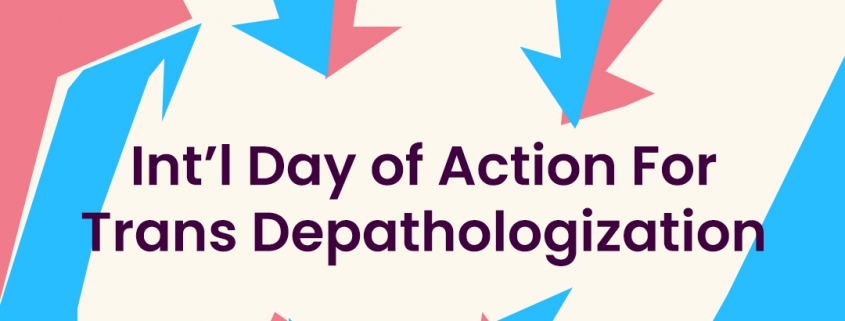Toward Depathologizing Trans: Deinstitutionalizing Trans Lives
Trans identity in Iran is heavily institutionalized, diagnosed, examined, and determined by others- confirmed or rejected.
The lives of trans-identified people are decided upon by third-parties.
“Obtaining an official permit for sex change is a prerequisite for adopting dress and mannerisms of one’s own experienced gender without facing a risk of arrest and conviction for transdressing, accessing specific treatments such as hormone therapy or sex reassignment surgeries, qualifying for modest financial assistance from Iran’s State Welfare Organization, obtaining identity documents reflecting one’s gender, and applying for exemption from military service (for male-to-female transgenders).
In order to receive this life-changing permit, transgender individuals must undergo between eight to twelve psychotherapy sessions, along with hormonal and chromosomal tests, with a view to obtaining a medical statement that diagnoses them with “Gender Identity Disorder” and recommends them for sex reassignment surgery to the judiciary.
Depending on their financial situation, transgender individuals complete these psychotherapy sessions either with private psychiatrists who have established a working relation with the LMOI or with publicly funded psychiatrists at the Tehran Psychiatric Institute (TPI), a clinic affiliated with the Iran University of Medical Sciences.
At TPI, the diagnostic process begins with a four to six month period of psychotherapy with a TPI-affiliated psychiatrist, and ends with an interview with a Determination Commission composed of between three to five mental health professionals.
Upon the completion of this process, the TPI decides whether to recommend an applicant for sex reassignment surgery to the LMOI, require further tests and therapy or reject the applicant altogether.
Once the TPI or a private psychiatrist recommends an applicant for sex reassignment surgery, he or she can present to the Prosecution Office to apply for an official permit for a sex change. The Office of the General Prosecutor in turn refers the applicant to the Psychiatrist Ward of the LMOI, which then takes control of the process and sets an interview with a Commission of psychiatrists and clinical psychologists working under its auspices. This Commission is charged with determining the applicant’s “affliction with Gender Identity Disorder” and confirming his/her eligibility for undergoing hormone therapy and sex reassignment surgery.”


Leave a Reply
Want to join the discussion?Feel free to contribute!